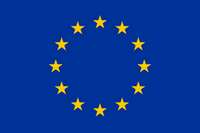share

HI’s Child-friendly area for drawing, playing and activities at the Ngourtou Koumboua primary school. Lake Province, Chad. | © HI
In the Lake Province of Chad, insecurity has prevented thousands of children from attending school. With support from the European Union, HI works to improve access to education, protection and psychosocial support.
“My name is Fatime Zara. I am 11 years old. I’m from the Yiroubou sub-prefecture of Bol and I live with my parents. Before coming to the Ngourtou Koumboua site for displaced persons, I had never been to school.
I am so happy to see an elementary school in Ngourtou Koumboua for the first time. A year ago we didn't expect to see classrooms, but today, thanks to HI’s support, we have classrooms, school kits, text books, teachers, bathrooms, a school cafeteria, and a safe space to play.
The school brings me knowledge and intelligence. My favorite subject is reading. I also play in the child-friendly space and participate in activities like clean latrine contests organized by the hygiene club.
I hope to continue my studies until the end. I don’t want to be married until I am of age, and I want to choose my own husband. I am motivated to go to school and learn the French language because it will allow me to have a job. My dream is to be a humanitarian, because helping vulnerable people is really important to me.”
“My name is Mai Djibrillah. I am 14 years old and I am from Yiroubou, in the islands of Bol. I am in the CP2 class and I live with my uncle.
I arrived at the site 2 years ago following a violent attack in Melea where I lost my older brother, which pushed us to move and come here. Before coming to the Ngourtou Koumboua site, I went to school in the Melea village. During the move, I was taken away from my school and separated from my friends.
I like being at the school here because I have gotten to know the other children who come from different backgrounds and our teachers show us how to live together peacefully.
I also like participating in the clean-up days our teachers organize every Saturday. My favorite subjects are reading and singing, and I want to be a teacher one day.”
The Lake Province of Chad has been exposed to recurrent armed conflict since 2010, resulting in over 400,000 internally displaced persons and preventing nearly 25,000 school-aged children from accessing their right to education. The unstable situation left the region with insufficient teachers, schools and learning materials. HI aims to support the physical, psychosocial and intellectual protection of children impacted by the crisis by improving access and quality of education. The organization has contributed to the construction of classrooms, child-friendly play areas, and hygienic facilities including accessible toilets for children with disabilities.
HI has recruited, financed and trained teachers for the school, including trainings on inclusive education, psychosocial support and protection of students. The organization also distributed supplies such as backpacks, textbooks and pens to students and provides financial support for other materials needed. Present in 12 zones, the project targets 12,000 children, including 6,000 girls and 2400 children who have disabilities or are particularly vulnerable.
 The European Union and its member states are the primary financers of humanitarian aid. Through the Directorate General for Civil Protection and Humanitarian Aid Operations (ECHO), the European Union assists millions of victims of conflict and disaster every year. With its headquarters in Brussels and an international network of field offices, it provides assistance to the most vulnerable people on the basis of humanitarian needs.
The European Union and its member states are the primary financers of humanitarian aid. Through the Directorate General for Civil Protection and Humanitarian Aid Operations (ECHO), the European Union assists millions of victims of conflict and disaster every year. With its headquarters in Brussels and an international network of field offices, it provides assistance to the most vulnerable people on the basis of humanitarian needs.








HI is an independent and impartial aid organisation working in situations of poverty and exclusion, conflict and disaster. We work alongside people with disabilities and vulnerable populations, taking action and bearing witness in order to respond to their essential needs, improve their living conditions and promote respect for their dignity and fundamental rights.
HI is an independent and impartial aid organisation working in situations of poverty and exclusion, conflict and disaster. We work alongside people with disabilities and vulnerable populations, taking action and bearing witness in order to respond to their essential needs, improve their living conditions and promote respect for their dignity and fundamental rights.